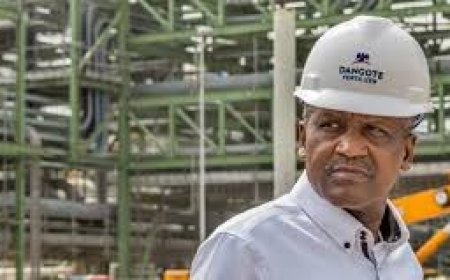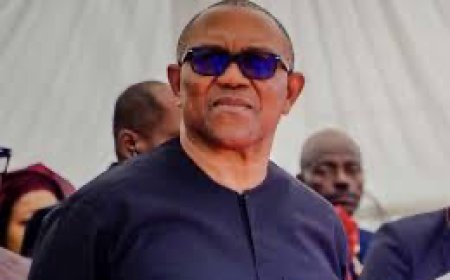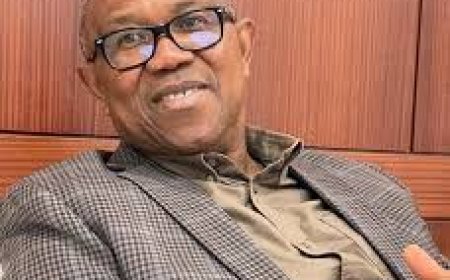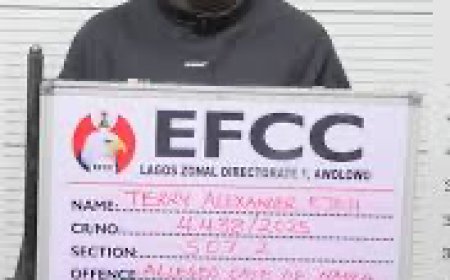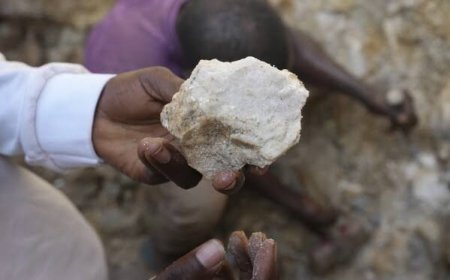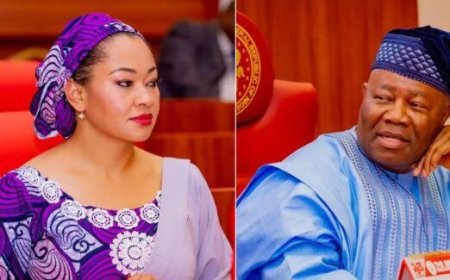Whose president is Tinubu, anyway?
Whose president is Tinubu, anyway? Tinubu’s current quandary as to his real national constituency may end in greater confusion unless he is ready to rediscover the source of his original sin and redress it.
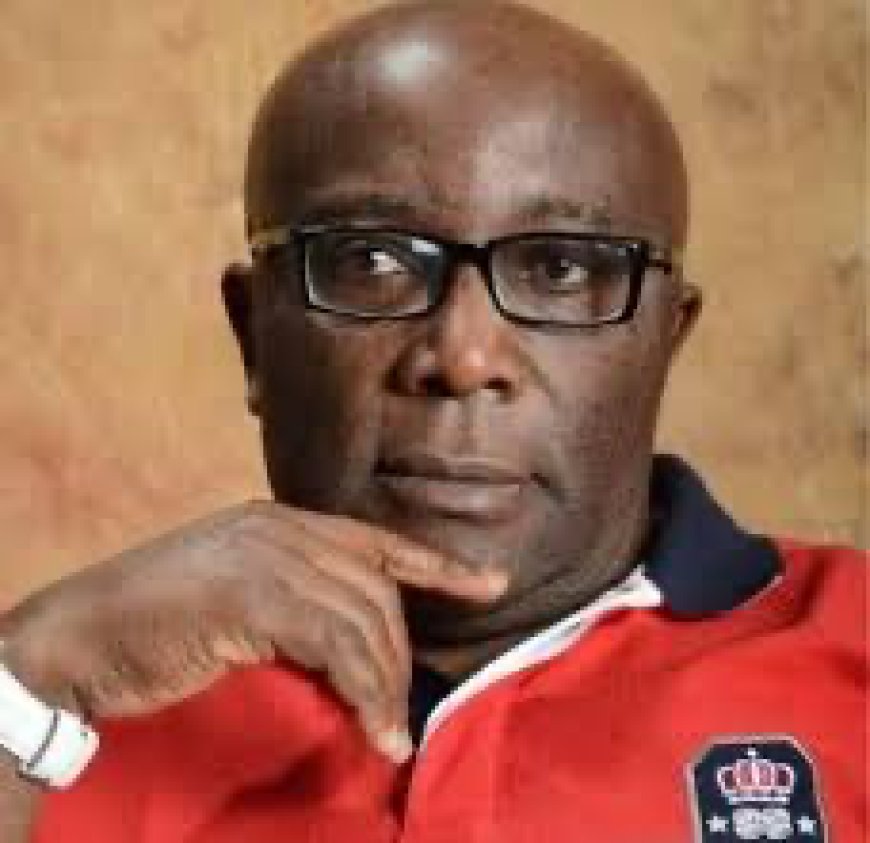
By Chidi Amuta
Whose president is Tinubu, anyway? Tinubu’s current quandary as to his real national constituency may end in greater confusion unless he is ready to rediscover the source of his original sin and redress it. That original sin is that he has failed to rise to the lofty height of the nation. Instead, he has spent two years struggling to reduce a great nation to the limited size of his stature, vision and politics. To discover his mission, Mr. Tinubu has to rise to the magnitude of his national canvass.
Midway into a rather routine and very tepid presidency, President Bola Tinubu is caught in strange identity crisis. Politicians from across the nation are asking the president to define whose leader he really is. The general public is equally embarrassed by what many see as an “anyhow” government: no focus, no commitment, no clarity of policy and a harvest of adversity all over the land. Suddenly, no political constituency seems ready to claim Tinubu as their own even as he tries desperately to make things happen. To paraphrase his colourless predecessor, “I belong to no one …”, and apparently no one belongs to me. That seems to be the summation of the present state of Tinubu and his national constituency.
The presidential throne is literally on fire from every direction. The president himself is hardly loved by the populace. He lacks the charisma and personal electricity to attract the popular support that should alleviate his failings to be glossed over and make his blatant sins forgivable. His actual performance on the job is below average. He has neither the intellectual depth nor the firm grasp of national issues and the way out to convince anybody that he has a higher interest than just the fancy title and the benefits of power.
An inchoate coalition of parties and interest groups is in the offing with an openly declared intent to oust Mr. Tinubu from his rent free quarters in Abuja. The regional interests are not disguised. The most consequential is a coalition of northern political interest groups. The entire northern political bloc seems to be united in the conviction that Mr. Tinubu’s presidency is not in their interest. They cite the declining security situation which has rendered the region dangerous. The roads are unsafe. Villages are being razed at will and their residents taken hostage routinely by a motley of bandit armies who have defied the agencies of national security. The farms are similarly no go areas as farmers can neither plant nor harvest freely except by paying huge tolls to bandits to get to their very farms. Nor can convoys of harvested goods and farm produce move freely through ambushes and road blocks mounted by bandits.
In a most unfortunate propaganda twist by the presidency, the myriad problems of the Tinubu government are being blamed on the fact that he is from the south. Tinubu’s chief town crier, Mr. Bayo Onanuga, has just screamed out. For him, Mr. Tinubu is being troubled because he is from the south, a rather desperate but unwise twist to a clear personal political problem created by failings of the president himself. In other words, there is a northern conspiracy against Tinubu. This silly divisive rhetoric is being erected to characterize an office whose principal aim is to unite a multinational country. Tinubu was elected to unite Nigerians, not to create and see regional adversaries in his self-inflicted political problems.
Underneath this lazy and mischievous diversion is the assumption that Tinubu’s policies are in the interest of the south. In other words, Tinubu is now being vilified for presumably placing the interests of the south over and above those of other regions especially the north. What nonsense.
The north has just organized a huge conference in Kaduna and ended up with a divided voice as to Tinubu’s precise political allegiance to the region that gave him most of the votes that installed him in Abuja. While the APC governors from the region insist that Tinubu has been fair to the region, the broad majority of freewheeling political agents from the region have disowned the man as a political traitor. Tinubu’s northern traducers point to an avalanche of grievances to make their point: Insufficient political appointments. Paucity of federal government projects and a general alienation of the core northern political elite from the policy making machinery of the federal government.
As for the broad south, the picture is even more unclear and worrisome. The strategic South-South cannot understand what hit them. Their voice in the Tinubu government is a mixed bag of a power drunk high and a thuggish low. The highs are Akpabio and the Wikes of this world and their variants. The lows are of course the Asari Dokubos and similar thugs. Until he passed on recently, the respected E.K. Clark never stopped lamenting the relative emptiness and lopsidedness of the Tinubu government as it concerned the marginalization of both the South-South and the South East respectively.
Tinubu’s matter with the South East is a different matter entirely. For a man who as Lagos State governor ran an integral and inclusive government that embraced a number of Igbos, the present total eclipse of the South East from national political life is scandalous. The alienation and exclusion of the region from the commanding heights of this administration has been heightened by a certain undeclared political hostility powered by the emergence and prominence of Mr. Peter Obi as the nation’s lead opposition figure. From the presidential election of 2023 to the present, Tinubu’s body language and grassroots political footwork has driven a dangerous wedge between the Igbos of the South East and their Yoruba compatriots in the South West. At the present moment, the social media and the language of common discourse on the streets between both groups is dripping with hate and bigotry. No one knows where this will lead in the run up to the 2027 elections.
As tragedy waves goodbye
In Tinubu’s own South West, there is a discordant tune. The rest of the country has no doubt that what Tinubu is presiding over is a virtual ‘Yoruba republic of Nigeria’. Over 98% of the strategic federal appointments and still counting are filled with persons with Yoruba sounding names. These range from the highest positions in defence, security, finance, internal affairs, oil, gas, etc. Accomplished Yoruba sons and daughters who have shared a higher commitment to the noble values of inclusive nationhood are embarrassed by Tinubu’s xenophobic and exclusive pattern of appointments. And yet within the Yoruba world, there is loud grumbling that Tinubu’s definition of Yorubaland is limited to a choice of his friends from the Lagos circuit and the Ogun State axis from where he has appointed four cabinet ministers in flagrant violation of the federal character principle and the spirit and letter of the 1999 constitution.
Yet the preponderance of Yoruba sounding names at the top of all strategic posts of government leaves a permanent stench of sickening ethnocentrism and decadent political myopia.
Ordinarily, while expecting the president to have a more enlightened sense of balance and inclusiveness, most Nigerians will feel better if indeed key political appointments at the federal level minimally represent the broad spectrum of the nation’s diversity. In the present situation, the feeling of state capture by Tinubu on behalf of the Yoruba faction of the national elite is inescapable.
Matters would have been somewhat lighter to bear if indeed the appointees were giving the nation a sterling quality of governance. Instead, the Tinubu administration has run the Nigerian state aground. Performance of key sectors is at its lowest ebb. National security is literally absent. Service delivery is nil while the welfare of the populace has been pulverized by an avalanche of taxes, thoughtless levies, tariffs and incoherent policy measures all of which have left a world of misery and increased poverty and frustration. Arguably, corruption and lack of transparency is at an all-time high.
Tinubu’s Yoruba world is not the universe of Obafemi Awolowo that combined the best technocrats and bureaucrats and even invited the traditional business acumen in the best Yoruba tradition to create a Western region which became a model region. Instead, Tinubu’s Yoruba federal republic is a hopeless land of corruption, incompetence, mediocrity and epic lack of capacity in all spheres.
This is not the first federal administration to include a sizeable number of Yoruba elite and technocrats at the top. President Ibrahim Babangida had Olu Falae, Ojetunji Abayode, Bolaji Akinyemi, Olikoye Ransome Kuti, Babs Fafunwa, Michael Omolayole, Tai Solarin, Wole Soyinka, Maria Sokenu and many other brilliant and accomplished Yoruba sons and daughters at the helm of national life and the team delivered sterling quality service to the nation.
I am personally troubled that Tinubu’s choice of Yoruba ‘best’ has devalued national service and now runs the risk of degrading the high standards that the world has come to associate with the Yorubas as a race. These people are associated with world class values, sense of equity, hospitality, accomplishments in science and technology, the administration of justice, democracy and the rule of law as well as art and culture. For this great civilization to be reduced now into the current Abuja rabble of office seekers, small thieves and pick pockets at the helm of the present administration is a crime that Tinubu should apologize to the Yoruba nation and ancestry for. No gravity of power grab can excuse this hubris by any standards. Indeed, Tinubu owes Nigeria an open apology for inflicting the worst stock of the Yoruba on the nation.
Tinubu’s current quandary as to his real national constituency may end in greater confusion unless he is ready to rediscover the source of his original sin and redress it. That original sin is that he has failed to rise to the lofty height of the nation. Instead, he has spent two years struggling to reduce a great nation to the limited size of his stature, vision and politics. To discover his mission, Mr. Tinubu has to rise to the magnitude of his national canvass.
What's Your Reaction?







